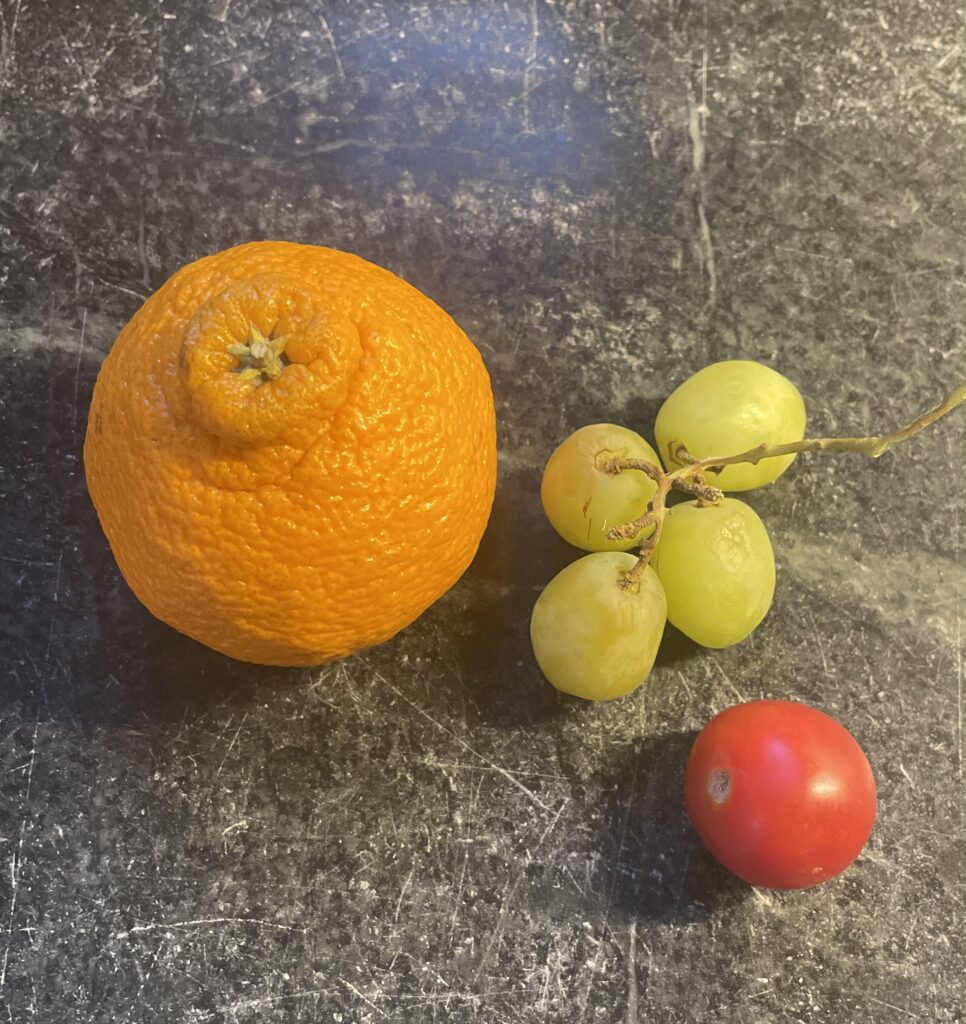
My Taxonomy class at the Barnes covered fruit this week. All protective casings surrounding seeds are fruit, which means of course that cucumbers, tomatoes, almonds, and pumpkins are fruit, but so are the cute little dandelion parachutes that flutter on a Spring breeze, the rose hip left behind on a tea rose when all the petals have fallen off and love has been disappointed, and the burr sticking to a damp pant leg after a Fall walk. Fruit exist in all shapes and forms; they can be large or tiny, moist or dry, sweet or not.
A fruit’s single-minded job is to protect its seeds, helping them journey to a place where they have a good shot at sprouting. One day, perhaps, they’ll grow to be state champion trees, nasty little invasive shrubs, or one-season gems. Desperate to fulfill their mission, some fruit want to be eaten by a bird, buried by a squirrel, thoroughly consumed until the seeds are cleaned of all fruity pulp in the acidic realm of a creature’s gut. Others wish to fly on the wind, float down streams, explode in wild fires.
We women, too, are fruit— temporary fleshy casings for offsprings we wish so very much to see not only sprouting from our innards but stretching high above the forest floor and basking in the sun, giving away oxygen and other good things for all the world to enjoy. We women, too —whether we’re sweet or not, tiny or large, bursting forth with confidence or shriveling with hurt— carry this wish for our progeny to endure.
It is easy to sense the many ways in which humans are animals, but in a sense, in the deepest of places (a billion-year-old place), we are also plants. On that note, I find it striking that the Torah’s account of creation speaks so much of seeds, of fruit, knowing what a major gift these are. It also calls children zerah, seeds, and words the injunction to bring children into the world as “p’ru u’revu”—“fruit and multiply.” To acknowledge a woman’s fruitiness might be controversial, even reactionary. Do we exist only to be consumed, to allow others to be cocooned by us and burst forth from us? Here again I find deep truth in Wendell Berry’s words: “…we all have to belong to something… We all have to be used up by something. And though I will never be a mother… I gladly belong to my wife, my children, and several heads of cattle, sheep, and horses. What better way to be used up?”(A Few Words for Motherhood, 1980).
Here’s to fruity women everywhere. Here’s to bearing, holding, protecting, birthing, pushing out, and letting go. Here’s to the joy of being fruitful, and to its twin pleasure, that of being used up.
3 responses to “To Be a Fruit”
Love this!
I love this analogy! I hope as you go into summer that you get some time to nourish your soul and grow.
Ha, this is a new concept for me! Women as fruit. As a fruit, I’ll be the hothouse kind, neither too hot or too cold for my comfort.
How do we subscribe to your blog, so we’d know when you post a new essay?